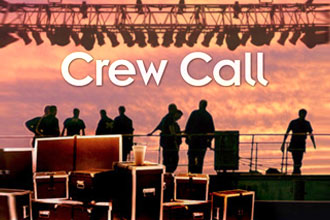Wheels Within Wheels
 I have often reflected, both in this column and elsewhere, on the cyclical nature of our business. Here we are in January, first month of the year, and some of those cycles are due to begin again. I’ve always thought of this process as an annual cycle, beginning in January and ending right after the winter holidays (since not much happens between the holidays in December and the first of the year, business-wise.)
I have often reflected, both in this column and elsewhere, on the cyclical nature of our business. Here we are in January, first month of the year, and some of those cycles are due to begin again. I’ve always thought of this process as an annual cycle, beginning in January and ending right after the winter holidays (since not much happens between the holidays in December and the first of the year, business-wise.)
But some things have happened in the last few days that cause me to think of these cycles over the longer term. Some of them seem to take decades, and yet the wheel does come around. Sometimes, as with winter, you simply have to have faith that spring is coming again. The cycles take care of many things, and because of that we have sayings such as “everything that goes up must come down,” “what goes around comes around,” and my personal favorite, “time wounds all heels.”
So most of us know what the annual cycles are, and we will get to them. But step back for a moment and take a look at the larger cycles, what they mean to AV, and even more importantly, what they could mean to the rental and staging end of the business:
The Big Voices: From the time I got into the technology business, now almost 30 years ago, I’ve been fortunate enough to do events for some of the big voices, whoever happened to be a big voice at the time. And there has always been a big voice. Bill Gates and Larry Ellison gave way to Steve Jobs, Jeff Bezos, etc. But if you pay attention to the newspapers and wire services, you’ll see that the big voice is now the collective small voice, thanks to social media. Oh sure, there are still stars, and there are still spokesmen, but it’s social media that promotes them to that position (for a while). In business, especially our business, this makes it harder to chart a path because you can’t simply pick a guru anymore. The gurus come and go, and depend absolutely on the support of collective voices to stay there.
The Organizations: Speaking of staying there (and this is where never say never comes in), I was there in 2000 when the pundits declared that Apple was already out of business, they just didn’t know it yet. The mighty Microsoft was an unassailable giant who determined the direction of technology for all of us. Today, Apple is the most profitable company in the history of the world, with enough cash on hand to buy their competitors, or as one magazine recently pointed out, to buy a fleet of nuclear aircraft carriers. The lesson: Nobody’s hold on technology is permanent, not even Microsoft’s, or Apple’s.
The Technology: And what made that wheel go around? Once again, the small voice. A Silicon Valley company finally put its hands and its vision on a series of compelling consumer products, beginning with the humble iPod. I was at the launch, watching from the edge of the stage at the Moscone Center as Steve offered the iPod up to the amazed crowd. That revolutionary consumer technology and its adoption caused ripples throughout the technology world and made us re-examine our technical destiny.
The point of all this? It is almost spring, and we are off to the land of trade shows, product launches, and hype. But this time around, the power of the hype really rests with the masses. So no matter what our favorite technology gurus tell us at the upcoming cycle of shows, we are beginning to have a way to gauge their ultimate success.
Is this good? I’m not sure. Steve Jobs was famous for thinking that the crowd was not a good predictor of success because they could only look at technology in the light of what they already knew. This meant that we needed to inform them of what they would want next, and convince them, placing products in the market before they had mass acceptance. At that iPod launch, I can remember confused members of the press walking out holding iPods and asking each other, “Why would I want to go through ripping all my CDs for this?”, while the AV crew walked out jabbering to each other about how “this changes everything.”
Back to the annual cycle:
So I am off to ISE, InfoComm Live, InfoComm, and a host of other electronics trade shows. We will all be bombarded with the latest and greatest, carry home stacks of literature we don’t want anymore and will never read, all the while holding our smartphones in our hands, reading live posts about the thing that we are looking at in front of us.
The moral of the story? The shows are important, and the new products are important, but they are no longer only about telling us about this year’s product line. They are now equally, or maybe even predominantly, our immediate way of telling manufacturers what we think of them.
Vox Populi, Vox Dei.





